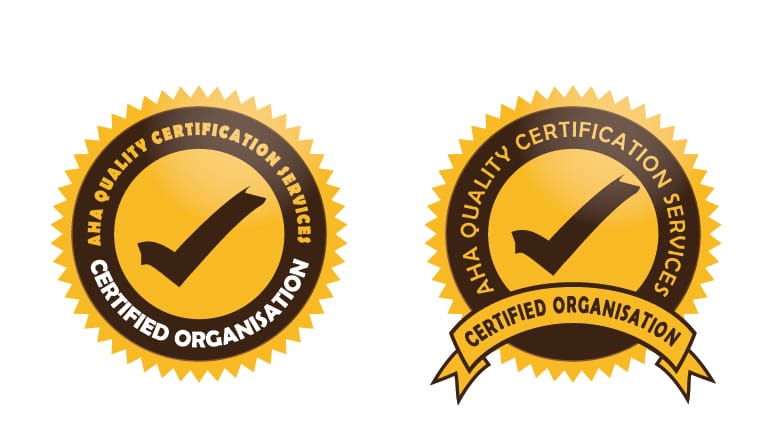The 8 Most Important Types of Quality Certifications and How to Obtain Them Globally

Quality certifications are certificates awarded to products or services that meet specific standards recognized globally. These certifications serve as a mark of product or service quality, enhancing trust between consumers, clients, manufacturers, or service providers. The types of quality certifications vary depending on the industry and sector, encompassing a range of criteria and specifications that must be met. Quality certifications are used as tools to improve performance, enhance safety, quality, and sustainability in production or service processes, thereby improving a company’s reputation and boosting its competitiveness in the global market.
**Definition of a Quality Certification**
A quality certification is an official mark granted by specialized entities, reflecting the quality of products and services offered across various sectors. It confirms that the certified products have been manufactured according to specified global standards. Thanks to quality certifications, international trade can proceed smoothly, allowing for easier exportation of these products, making them more appealing to importers and wholesalers worldwide. Although obtaining a quality certification is not mandatory, it may be necessary in certain sectors to promote product circulation and increase profits. With these certifications, products gain popularity and contribute significantly to profit growth.
**Types of Quality Certifications**
1. ISO 9001:
ISO 9001 is one of the most well-known quality certifications globally, focusing on quality management systems within organizations and improving internal processes.
2. ISO 14001:
This certification relates to environmental management systems, aiming to enhance companies’ environmental performance and reduce the negative environmental impacts of their activities.
3. ISO 45001:
This certification focuses on occupational health and safety management systems, aiming to improve working conditions and reduce the risks of accidents and injuries in the workplace.
4. HACCP (Hazard Analysis Critical Control Point):
HACCP focuses on food safety and is used in the food industry to control health risks and ensure the quality of food products.
5. GMP (Good Manufacturing Practices):
GMP refers to applicable standards for pharmaceutical and medical product manufacturing, ensuring that products are safe for use and comply with required health standards.
6. ISO/IEC 17025 – Laboratory Accreditation Certificate:
Used in testing and calibration fields, this certification confirms the competence of laboratories and their ability to deliver accurate and reliable results.
7. CE Mark (European Conformity):
Indicates that a product complies with European standards and is a comprehensive certification covering a wide variety of products.
8. UL Certification (Underwriters Laboratories):
Awarded to products that meet safety and performance standards set by UL, this certification is common in sectors like electronics and home appliances.
9. FDA Approval (Food and Drug Administration):
Pertains to pharmaceutical and food products, issued by the U.S. Food and Drug Administration to confirm the safety and quality of products.
10. CCC (China Compulsory Certification):
Used in China, this certification indicates that a product complies with Chinese safety and quality requirements.
11. ASME Certification (American Society of Mechanical Engineers):
Awarded to industrial equipment and devices, demonstrating compliance with advanced safety and quality standards.
12. CSA Certification (Canadian Standards Association):
Awarded to electrical products to confirm compliance with Canadian electrical standards.
13. ISO 21001 (Educational Organization Management Systems):
These standards are specifically designed for educational institutions, focusing on improving the quality of education and meeting the needs of students, teachers, and parents.
14. ISO 50001 (Energy Management System):
Aims to improve energy efficiency and reduce consumption by implementing effective energy management practices within organizations.
15. ISO 27001 (Information Security Management System):
Focuses on protecting data and ensuring the confidentiality and security of information within organizations, including managing risks related to cybersecurity.
16. ISO 22301:2012 (Business Continuity Management System):
Seeks to ensure the continuity and recovery of business operations after emergencies such as natural disasters or service disruptions.
17. ISO 21500 (Project Management Guidelines):
Provides comprehensive guidelines for project management from planning to execution and monitoring, aiming to achieve project goals effectively and efficiently.
18. ISO 26000 (Social Responsibility):
Based on socially responsible business practices and commitment to societal and environmental responsibility.
19. ISO 20000-1 (IT Service Quality Management System):
Aims to improve the quality of IT services and ensure customer requirements are met while enhancing overall organizational performance in this field.
**Types of Quality Certifications**
These are internationally recognized certifications aimed at providing assurance of the quality of products or services offered by organizations. They include, for example, ISO 9001, ISO 14001, ISO 22000, and many others. And here in Pol&Nile we offer customized consulting services to help organizations obtain these certifications and ensure the implementation of global quality standards in their operations.
**Benefits of Obtaining Quality Certifications**
– **Improved Quality Levels**:
Quality certifications contribute to raising the quality of products and services provided, enhancing consumer confidence and reflecting a company’s commitment to international standards.
– **Removing Trade Barriers**:
Quality certifications facilitate international trade by removing obstacles and encouraging trade exchange between countries.
– **Consumer Protection**:
Quality certifications provide consumers with assurance regarding the safety and quality of the products they purchase, helping them make decisions with confidence.
– **Global Competitiveness**:
Earning quality certifications helps companies increase their competitiveness globally, as the quality of their products and services is internationally recognized.
– **Access to Global Markets**:
Quality certifications enhance companies’ opportunities to access international markets more easily, as consumers prefer certified quality products.
– **Sustainable Development**:
Commitment to quality, safety, and environmental standards is part of corporate social responsibility, and quality certifications help promote sustainable development and environmental protection.
**Difference Between ISO Quality Certifications and Quality Management Certifications**
**Quality Management Certifications**
Quality certifications prove that institutions can meet customer requirements based on specified quality standards. These certifications define product or service specifications and required quality systems, enhancing the efficiency of production processes. These standards are defined and implemented by the International Organization for Standardization (ISO), reflecting a commitment to delivering high-quality products and exceptional services according to the best global standards in industry and services.
**ISO Certifications**
This certification clearly proves that the management system, production process steps, or documentation procedures comply with quality assurance and standardization requirements set by the International Organization for Standardization (ISO). The ISO 9001 standard is internationally recognized in Quality Management Systems (QMS), ensuring that organizations adhere to international quality and continuous improvement standards.
**Similarities Between ISO Quality Certifications and Quality Management Certifications**
Despite the differences, the two certifications are closely linked due to shared objectives, such as:
– Ensuring the quality and reliability of products and services provided.
– Creating a healthy work environment.
– Striving for customer and employee satisfaction within the organization.
– Establishing efficient production processes to deliver final products and services of high quality.
– Improving brand reputation in the market.
Quality management certifications are diverse, designed for professionals working in various fields such as manufacturing, engineering, accounting, and more. Below are the most widespread types of quality management certifications according to the type of organizational activity.
The Most Important Organizations Granting Quality Certifications in Egypt:
Egyptian Organization for Standardization and Quality (EOS):
The EOS provides services for registering bodies that grant certifications for quality management systems and verifies the validity of the certificates issued.
Website: https://www.eos.org.eg/ar
General Organization for Export and Import Control (GOEIC):
GOEIC offers training programs to grant export licensing certificates and provides internationally accredited quality system certifications.
Website: https://www.goeic.gov.eg/ar
These organizations play a key role in ensuring compliance with quality standards in Egypt, supporting businesses in achieving international certification, and facilitating trade by maintaining high-quality benchmarks.

